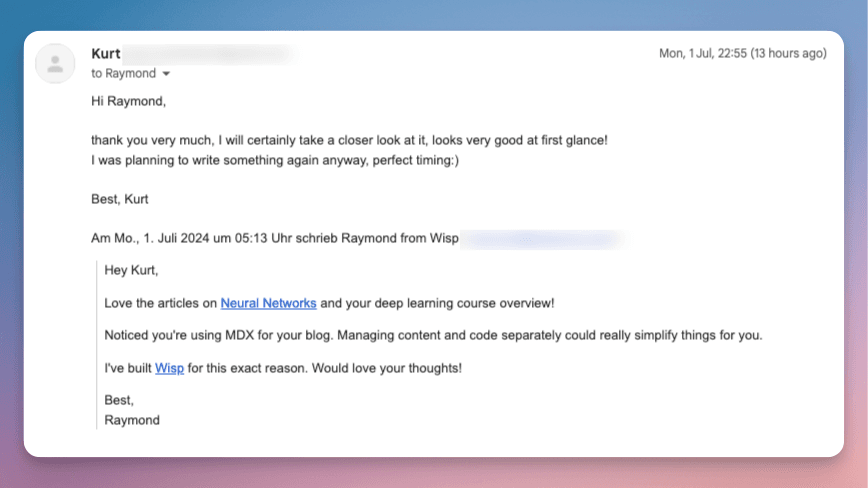
The enterprise software landscape is witnessing a revolutionary shift with the emergence of Vertical AI agents. These specialized AI systems are not just another iteration of software-as-a-service (SaaS) - they represent a fundamental transformation in how businesses operate, promising to be substantially larger than the traditional SaaS market.
The Rise of Vertical AI Agents
Imagine having a specialized AI system that doesn't just assist your team but effectively handles entire workflows in your specific industry. That's the promise of Vertical AI agents - AI-powered solutions designed to tackle high-cost, repetitive tasks across specialized sectors like legal, healthcare, and finance.
According to recent insights from Y Combinator, the market potential for Vertical AI agents could exceed $300 billion, dwarfing the current SaaS landscape. This isn't just another tech trend - it's a fundamental shift in how businesses will operate in the future.
What Makes Vertical AI Agents Different?
Unlike traditional SaaS solutions that often provide broad, generalized functionality, Vertical AI agents are laser-focused on specific industries and use cases. They leverage Large Language Models (LLMs) to understand and execute complex tasks that previously required human expertise.
Key characteristics that set Vertical AI agents apart:
Industry Specialization: Rather than being general-purpose tools, these agents are built with deep domain knowledge for specific sectors.
End-to-End Automation: They can handle complete workflows, not just individual tasks.
Adaptive Learning: These agents improve over time by learning from industry-specific data and interactions.
Cost Efficiency: They can dramatically reduce operational costs by automating expensive, time-consuming processes.
Consider Abridge in the healthcare sector - it transforms doctor-patient conversations into clinical notes automatically, a task that traditionally consumed hours of medical professionals' time. Or take EvenUp in the legal industry, which streamlines the creation of demand letters, enabling law firms to handle more cases without expanding their team.
The Market Opportunity
The potential impact of Vertical AI agents extends far beyond simple automation. These solutions are showing remarkable growth rates of approximately 400% year-over-year, indicating they're addressing crucial market needs that traditional software solutions haven't fully met.
This explosive growth potential stems from several factors:
Untapped Markets: Many niche industries still rely on manual processes or outdated systems
Cost Reduction: The ability to replace entire teams' worth of work with AI-driven solutions
Improved Accuracy: Specialized AI can often outperform humans in routine tasks
Scalability: Once developed, these agents can be deployed across multiple organizations within the same vertical
Real-World Applications and Impact
Healthcare Sector
In healthcare, Vertical AI agents are revolutionizing how medical professionals handle documentation and patient care. Abridge demonstrates this perfectly - their AI solution automatically converts patient-doctor conversations into structured clinical notes, addressing one of healthcare's most time-consuming tasks.
Legal Industry
The legal sector is seeing similar transformations. EvenUp has developed AI agents that automate the creation of demand letters and other legal documents. This allows law firms to handle more cases efficiently without necessarily expanding their workforce.
Financial Services
In finance, Vertical AI agents are being deployed for:
Investment analysis and portfolio management
Risk assessment and compliance monitoring
Automated customer service and support
Fraud detection and prevention
Internet Publishing
In the publishing space, Wisp has developed AI agents that can automate the tideous process of writing high-quality content - like this one! The agent are being deployed to:
Perform market research on what's new and attention-worthy
Perform in-depth research on the topic
Perform research in user sentiments and reaction
Write in-depth articles and social media content
Create supporting resources like article descriptions, featured images, social media posts, etc
The Technology Behind Vertical AI Agents
The power of Vertical AI agents comes from their sophisticated technical foundation:
Large Language Models (LLMs): These form the core understanding and processing capabilities
Industry-Specific Training: Agents are fine-tuned with domain-specific data
Workflow Automation: Integration with existing systems and processes
Data Processing: Ability to handle both structured and unstructured data
Implementation Challenges and Solutions
While the potential is enormous, implementing Vertical AI agents comes with its own set of challenges:
Technical Challenges
As noted in user discussions, many developers face issues with:
LLMs breaking or hallucinating in complex workflows
Difficulties in data storage and retrieval
Integration with existing systems
Organizational Challenges
Companies implementing these solutions often encounter:
Resistance from employees concerned about job displacement
Need for significant process reorganization
Training requirements for effective AI-human collaboration
Best Practices for Implementation
Based on insights from successful implementations and user experiences, here are key strategies for effectively deploying Vertical AI agents:
1. Focus on Specific Use Cases
As emphasized in user discussions, it's crucial to "focus on one particular use case rather than trying to solve every problem." This targeted approach allows for:
Better optimization of the AI agent
Clearer measurement of success
Easier user adoption
More refined problem-solving
2. Leverage Domain Expertise
Success in Vertical AI requires deep understanding of both the industry and technical aspects. As noted in user research, there's "trapped domain expertise" that can only be effectively utilized by those who:
Have expert-level knowledge in the field
Can translate that knowledge into technical requirements
Understand the specific pain points and workflows
3. Start Small and Scale
A practical approach to implementation includes:
Beginning with a minimal viable product (MVP)
Gathering user feedback early and often
Iterating based on real-world usage
Expanding functionality gradually
The Future of Vertical AI Agents
The market for Vertical AI agents is expected to grow exponentially, driven by several factors:
Market Evolution
Increasing adoption across industries
More sophisticated AI capabilities
Growing demand for specialized solutions
Competitive pressure to automate
Emerging Trends
Integration with Existing Systems: Better connectivity with current business tools
Enhanced Customization: More industry-specific features and capabilities
Improved Accuracy: Better handling of complex tasks and edge cases
Greater Autonomy: Less human intervention needed for routine operations
Key Considerations for Businesses
Evaluating Vertical AI Solutions
When considering implementing Vertical AI agents, businesses should:
Assess Current Processes
Identify high-cost, repetitive tasks
Evaluate potential ROI
Consider implementation complexity
Consider Integration Requirements
Compatibility with existing systems
Data security and privacy needs
Training and support requirements
Plan for Change Management
Address employee concerns about AI implementation
Develop training programs
Create clear communication strategies
Conclusion
Vertical AI agents represent a significant leap forward in enterprise software, offering the potential to transform how businesses operate across various industries. While the technology is still evolving, early adopters are already seeing impressive results in terms of efficiency gains and cost reduction.
The market's projected growth to over $300 billion indicates that we're just at the beginning of this transformation. As these solutions become more sophisticated and widely adopted, they will likely become essential tools for businesses looking to remain competitive in their respective industries.
For businesses considering implementation, the key is to start with specific, well-defined use cases and gradually expand based on success and learning. The future of enterprise software is increasingly vertical, increasingly intelligent, and increasingly automated.
Additional Resources
For those interested in learning more about Vertical AI agents:
The rise of Vertical AI agents marks not just an evolution in software development, but a fundamental shift in how businesses operate and compete in the digital age.



